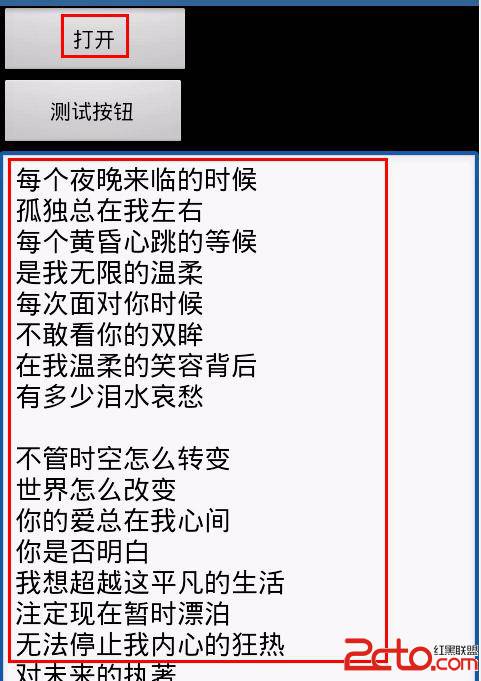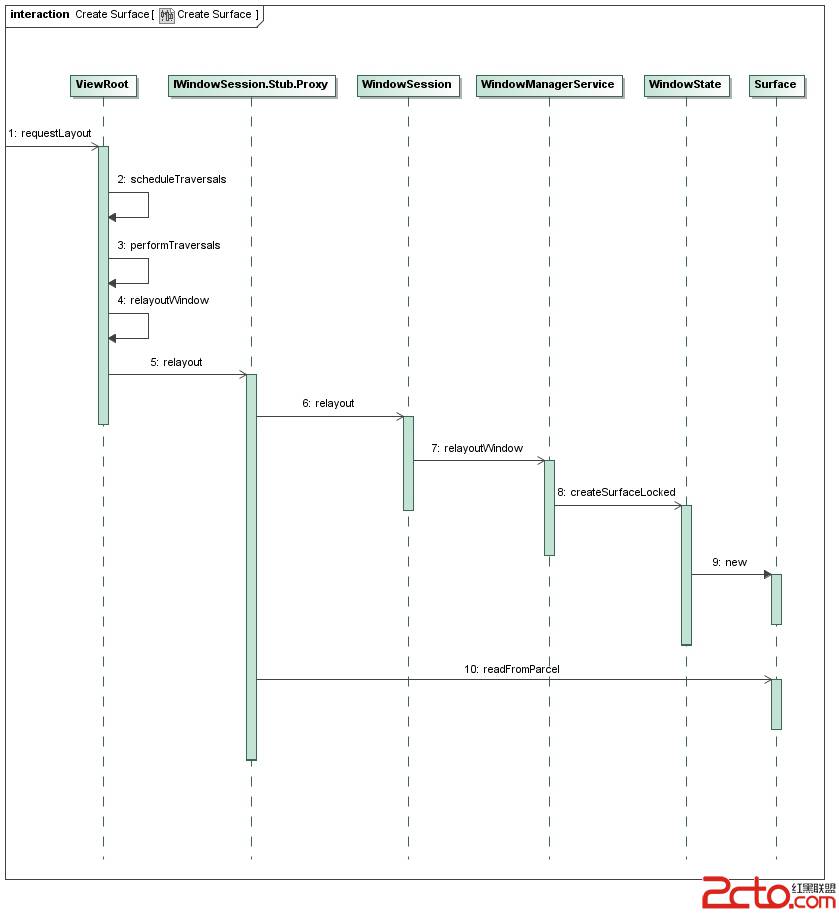Android Audio代码分析3 - 创建AudioTrack对象
今天来看看类AudioTrack的构造函数。
出发点是Java中的AudioTrack类。
从前面的使用实例中可知,应用程序中要实现播放,首先要创建一个AudioTrack对象,然后调用其函数来实现播放。
*****************************************源码*************************************************
public AudioTrack(int streamType, int sampleRateInHz, int channelConfig, int audioFormat,
int bufferSizeInBytes, int mode, int sessionId)
throws IllegalArgumentException {
mState = STATE_UNINITIALIZED;
// remember which looper is associated with the AudioTrack instanciation
if ((mInitializationLooper = Looper.myLooper()) == null) {
mInitializationLooper = Looper.getMainLooper();
}
audioParamCheck(streamType, sampleRateInHz, channelConfig, audioFormat, mode);
audioBuffSizeCheck(bufferSizeInBytes);
if (sessionId < 0) {
throw (new IllegalArgumentException("Invalid audio session ID: "+sessionId));
}
int[] session = new int[1];
session[0] = sessionId;
// native initialization
int initResult = native_setup(new WeakReference<AudioTrack>(this),
mStreamType, mSampleRate, mChannels, mAudioFormat,
mNativeBufferSizeInBytes, mDataLoadMode, session);
if (initResult != SUCCESS) {
loge("Error code "+initResult+" when initializing AudioTrack.");
return; // with mState == STATE_UNINITIALIZED
}
mSessionId = session[0];
if (mDataLoadMode == MODE_STATIC) {
mState = STATE_NO_STATIC_DATA;
} else {
mState = STATE_INITIALIZED;
}
} www.zzzyk.com
***********************************************************************************************
源码路径:
frameworks\base\media\java\android\media\AudioTrack.java
###########################################说明##############################################################
还是先看看自带注释:
/**
* Class constructor with audio session. Use this constructor when the AudioTrack must be
* attached to a particular audio session. The primary use of the audio session ID is to
* associate audio effects to a particular instance of AudioTrack: if an audio session ID
* is provided when creating an AudioEffect, this effect will be applied only to audio tracks
* and media players in the same session and not to the output mix.
* When an AudioTrack is created without specifying a session, it will create its own session
* which can be retreived by calling the {@link #getAudioSessionId()} method.
* If a session ID is provided, this AudioTrack will share effects attached to this session
* with all other media players or audio tracks in the same session.
* @param streamType the type of the audio stream. See
* {@link AudioManager#STREAM_VOICE_CALL}, {@link AudioManager#STREAM_SYSTEM},
* {@link AudioManager#STREAM_RING}, {@link AudioManager#STREAM_MUSIC} and
* {@link AudioManager#STREAM_ALARM}
* @param sampleRateInHz the sample rate expressed in Hertz. Examples of rates are (but
* not limited to) 44100, 22050 and 11025.
* @param channelConfig describes the configuration of the audio channels.
* See {@link AudioFormat#CHANNEL_OUT_MONO} and
* {@link AudioFormat#CHANNEL_OUT_STEREO}
* @param audioFormat the format in which the audio data is represented.
* See {@link AudioFormat#ENCODING_PCM_16BIT} and
* {@link AudioFormat#ENCODING_PCM_8BIT}
* @param bufferSizeInBytes the total size (in bytes) of the buffer where audio data is read
* from for playback. If using the AudioTrack in streaming mode, you can write data into
* this buffer in smaller chunks than this size. If using the AudioTrack in static mode,
* this is the maximum size of the sound that will be played for this instance.
* See {@link #getMinBufferSize(int, int, int)} to determine the minimum required buffer size
* for the successful creation of an AudioTrack instance in streaming mode. Using values
* smaller than getMinBufferSize() will result in an initialization failure.
* @param mode streaming or static buffer. See {@link #MODE_STATIC} and {@link #MODE_STREAM}
* @param sessionId Id of audio session the AudioTrack must be attached to
* @throws java.lang.IllegalArgumentException
*/
开始先介绍了session。创建AudioTrack的时候需要指定一个audio session。
如果这个session已经被其他的播放器或者audio track使用,新创建的AudioTrack就会和它们共享AudioEffect。
如果是第一次使用该session,AudioEffect就会将session与新创建的AudioTrack对象关联起来,
以后其他的播放器或audio track再使用该session时,就会与该AudioTrack共享AudioEffect。
如果没有指定一个session,就会为该AudioTrack创建一个自己的session,该session可以被别人通过getAudioSessionId得到。
别人得到了该session,并且使用该session创建播放器或者audio track,就会会你共享Audi
补充:移动开发 , Android ,




